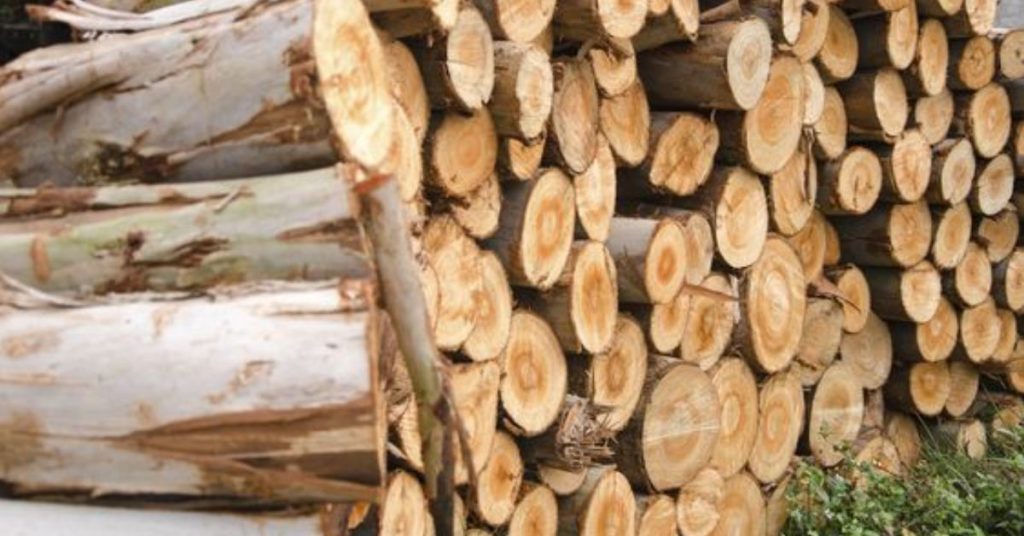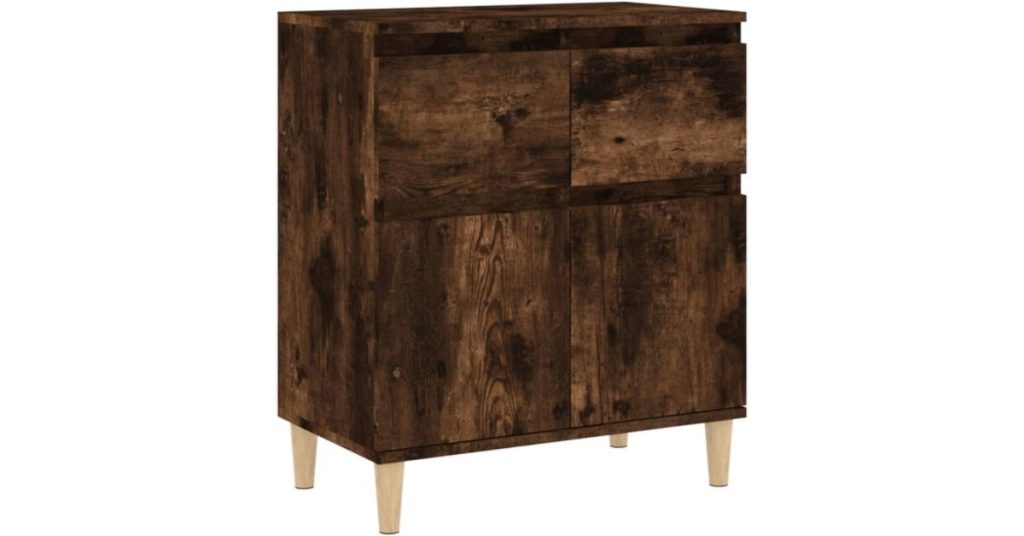Eucalyptus Wood Vs. Exotic Woods: Which Is More Cost-Effective For Woodworking?
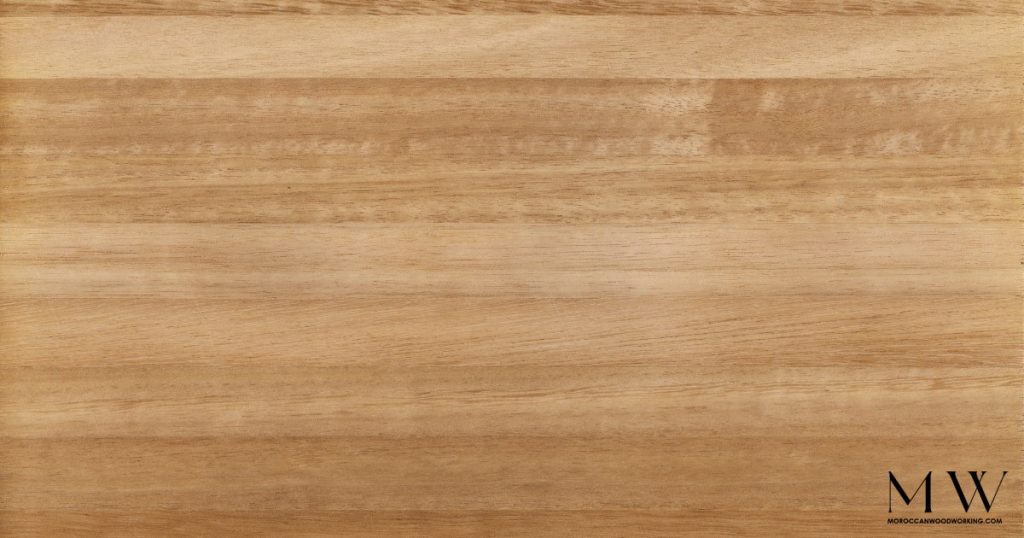
Woodworking is a hobby and profession that has been around for centuries. With the wide variety of woods available to work with, it can be difficult to decide which type will give you the best results while being cost-effective. Eucalyptus wood and exotic woods are two of the most popular choices among woodworkers. So, what’s the difference between them? Let’s take a look at eucalyptus wood vs. exotic woods: which one is more cost-effective for woodworking?
Eucalyptus Wood: Pros & Cons
Eucalyptus wood has quickly become a go-to choice for many woodworkers due to its affordability and ease of use. It’s also known for its durability and strength, making it an ideal material for furniture, cabinets, flooring, and other projects where stability matters. However, eucalyptus isn’t as aesthetically pleasing as some of the more expensive options on the market today — such as teak or walnut — so if you’re looking to make something beautiful with your project pieces, this may not be the best wood option for you.
Exotic Woods: Pros & Cons
Photo by Tim Mossholder on Unsplash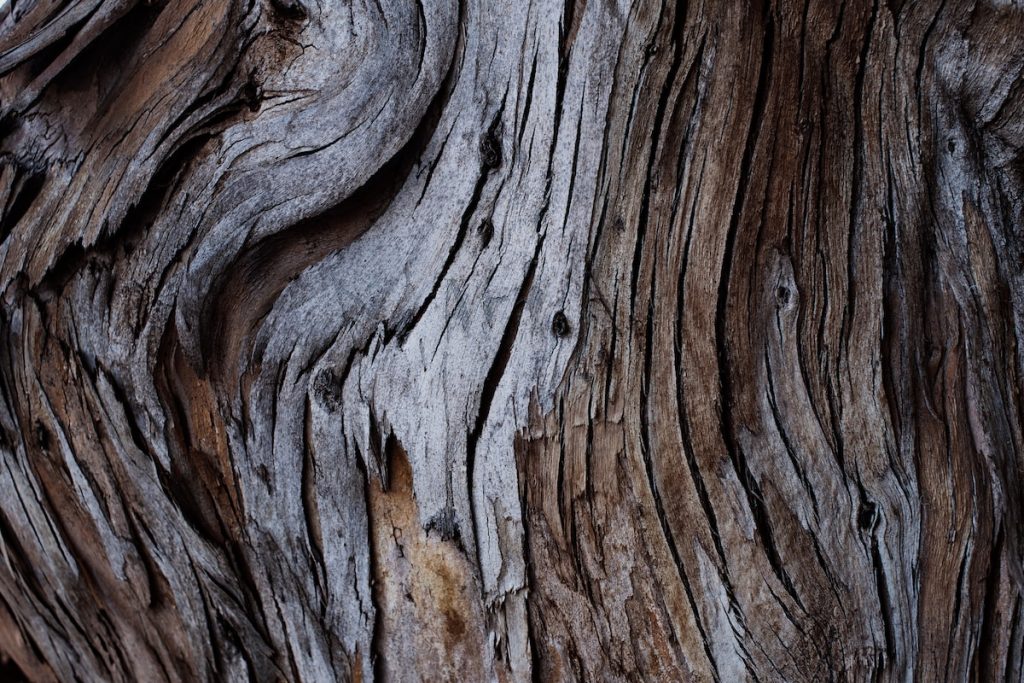
On the other hand, some prefer using exotic woods in their projects because they bring a certain natural beauty that can’t quite be replicated by manmade materials or even common hardwoods like oak or maple. Exotic woods tend to have interesting grains and colors that allow craftsmen to create truly unique works of art out of simple boards. The downside is that these types of lumber usually come with hefty price tags attached; however, experienced woodworkers know how to get around this issue by finding good deals online or sourcing reclaimed materials from local vendors whenever possible.
Definition Of Eucalyptus Wood
Have you ever heard of eucalyptus wood? If not, then it’s time to learn because this type of wood is becoming increasingly popular among woodworkers. It has a unique set of properties that make it particularly suitable for various applications in the field and can be used as an alternative to more expensive exotic woods. In this article, we’ll take a look at what makes eucalyptus so special and how it stacks up against other types of wood when it comes to cost-effectiveness.
Eucalyptus is a genus containing over 700 species of trees and shrubs originating from Australia, New Zealand, Indonesia, Malaysia, and South America. Each eucalyptus species varies significantly in terms of coloration and grain patterns but all share common characteristics such as being lightweight yet strong with good bending qualities due to its open cell structure. Depending on the variety chosen, eucalyptus can range from light yellowish browns to deep red hues.
When considering using eucalyptus for woodworking projects, one must consider the numerous benefits associated with this type of wood. What sets eucalyptus apart from other varieties is its low density coupled with high strength which means that it is relatively easy to work with while still providing excellent durability and stability. Additionally, eucalyptus doesn’t require any chemical treatment or preservatives like some other woods do which keeps costs down further during production. Furthermore, most varieties are naturally resistant to decay making them ideal choices for outdoor furniture or even boat building where they will be exposed to water frequently.
In comparison to exotic woods such as mahogany or teak, eucalyptus offers several advantages when it comes to cost-effectiveness without sacrificing quality or aesthetics too much either way. As mentioned earlier it requires no additional treatments before use meaning less money spent on supplies; additionally many varieties are considerably cheaper than their more luxurious counterparts making them ideal options for budget-conscious customers who want something just as attractive but won’t break the bank doing so!
Advantages And Disadvantages Of Eucalyptus Wood
Now that we have a better understanding of what eucalyptus wood is, let’s look at the advantages and disadvantages it offers for woodworking.
When it comes to benefits, one of the biggest draws of using eucalyptus wood is its cost-effectiveness. Eucalyptus wood tends to be cheaper than most exotic woods, making it an attractive option for budget-conscious projects. Additionally, eucalyptus has excellent characteristics such as being lightweight yet durable enough to provide strength and stability when used in furniture or other wooden structures. It also resists rot and decays well, so you can expect your project to last longer than if you were working with other types of wood.
However, there are some drawbacks to consider as well. One is that eucalyptus does not hold paint or stain very well compared to many other types of lumber. This means if you’re looking for a colorful finish on your project you may need to use additional coats of sealant or primer before painting or staining – which will add extra time and money into the equation. Another downside is that eucalyptus lacks grain definition, so decorative techniques like carving may have limited results due to the lack of texture variance between grains.
So while there are pros and cons associated with this type of lumber, overall it presents a more affordable alternative than exotic woods without sacrificing too much quality or durability when used in various applications around the home. That said, it’s important to think about how each factor might affect the outcome of your project before jumping into buying materials – but don’t forget about eucalyptus wood either! With the right knowledge and application skillset in place, this could be just the material needed for success in those upcoming DIY endeavors.
Definition Of Exotic Woods
Photo by Tim Mossholder on Unsplash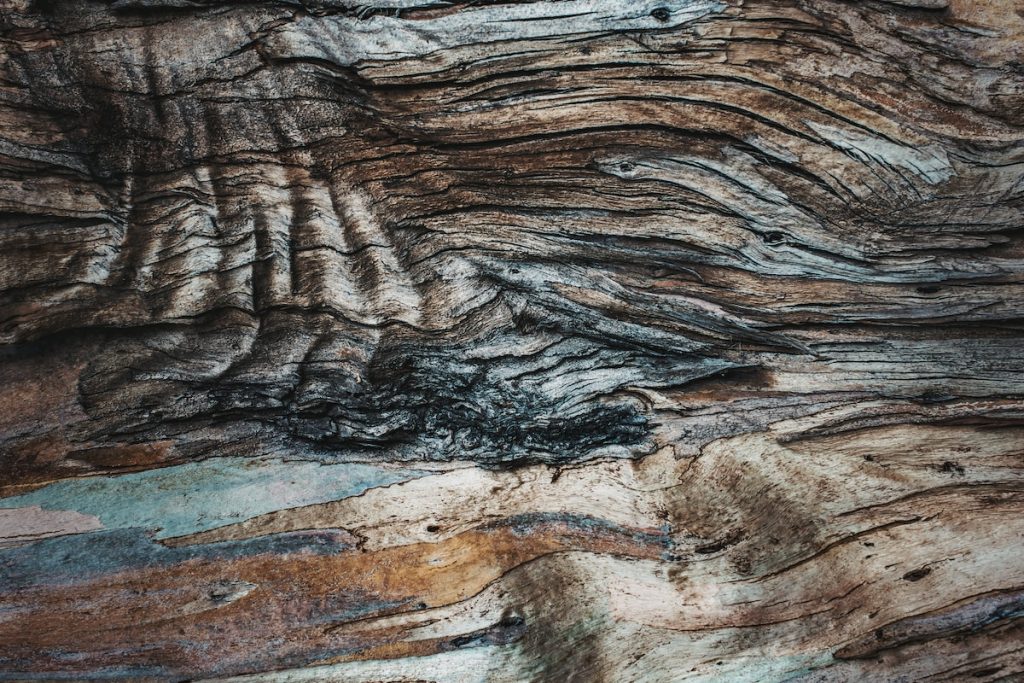
Have you ever wondered what makes exotic woods so different from other types of wood? It’s the answer to this question that will help us determine which type is more cost-effective for woodworking. To begin, let’s define exactly what constitutes an exotic wood species and its key characteristics.
Exotic hardwood species are typically found in tropical regions around the world, including Africa, Central America, and South America. These unique woods feature a variety of colors, textures, and patterns not seen in many other types of wood. For example, some exotic woods such as Brazilian cherry have deep reddish hues while others like bubinga contain striking black and white streaks. Exotic woods also possess distinctive properties making them attractive to craftspeople looking to create beautiful furniture pieces or cabinetry.
The main property of exotic hardwoods is their density – they tend to be much denser than common softwood species used for construction projects (such as pine and cedar). This means they can withstand heavy use with minimal wear and tear over time, thus increasing their longevity compared to softer varieties. Additionally, these hardwoods offer superior stability when exposed to changing temperatures or humidity levels; perfect for areas prone to fluctuating weather conditions.
Finally, due to their rare availability on the market today, there’s often a premium associated with purchasing exotic hardwood lumber versus standard domestic options – sometimes up five times higher! Despite costing more upfront, if treated correctly it can last generations – making it well worth considering when deciding which type of wood is most cost-effective for your project.
Advantages And Disadvantages Of Exotic Woods
When it comes to woodworking, exotic woods are often seen as an attractive alternative to traditional eucalyptus wood. However, there are both advantages and disadvantages associated with using these kinds of wood for projects. Let’s explore the pros and cons of exotic woods:
- Exotic Wood Types: Exotic woods come in a wide variety of species, each with its unique properties and characteristics. From Zebrawood to Bocote, you can find the perfect type of wood suitable for your specific project needs.
- Advantages of Exotic Woods: Generally speaking, exotic woods tend to be more hard-wearing than eucalyptus wood, making them ideal for long-term use or outdoor applications. They also offer a greater range of color options due to their natural grain patterns and textures which many find aesthetically pleasing. Additionally, some types of exotic wood have certain properties that make them useful for specialized tasks like soundproofing or insulating against temperature changes.
- Disadvantages of Exotic Woods: One major drawback is the cost – because they’re not easy to source and usually require importation from other countries, exotic woods generally carry higher price tags than regular varieties such as Eucalyptus and Oak. Moreover, due to their unique composition, they may be harder to work with depending on your skill level as a woodworker; extra care must be taken when cutting and shaping these materials since they tend to splinter more easily compared with softer domestic varieties (pine). Finally, some tropical species are endangered so if environmental sustainability is important then this will need to factor into your decision too.
At the end of the day, it all depends on what kind of project you’re undertaking and whether any particular qualities offered by exotic woods would add value or benefit your efforts in any way. It’s worth noting however that eucalyptus tends to offer better overall value given its lower cost and relative ease in working with it compared with more expensive exotics
Durability Comparison
Ah, the age-old question of eucalyptus wood vs. exotic woods: which is more cost-effective for woodworking? In this section, I’ll be focusing on their respective durability comparisons and long-term longevity.
To begin with, let’s look at the eucalyptus’ strength comparison. This type of wood has a Janka rating scale of about 860, making it one of the most durable hardwoods available in terms of its ability to resist scratches and dents from furniture or other projects. It also retains its shape over time and can last many years if maintained properly — a bonus when you’re investing in your project!
Now we’ll move on to exotic woods like mahogany, teak, rosewood, etc., all known for having high durability ratings as well. These types are usually much harder than eucalyptus, though they too must be treated with care to maintain their optimal condition throughout the years. However, unlike the eucalyptus furniture, which may need restaining every few years depending on usage, these exotics will stay looking great even after decades due to their natural oils that act as preservatives against wear and tear.
Overall both options provide plenty of value for money when it comes to durability and longevity – but some factors should be taken into consideration before purchasing either material such as availability (eucalyptus being widely accessible) price point (exotic woods often costing more), etc.
When comparing these two materials side by side there isn’t any clear winner – just choose whichever fits best within your budget while still providing enough quality assurance for whatever project you have planned down the line!
Price Comparison
When it comes to woodworking, cost-effectiveness is a major factor. Eucalyptus and exotic woods both have their advantages when it comes to price points; however, there can be quite a difference in terms of affordability. To compare the two options for cost-effectiveness, let’s look at how they stack up against each other on an individual basis.
Eucalyptus wood is among the most affordable hardwoods available today. It has a wide range of uses and can be used in any type of furniture or craft project without breaking the bank. The downside of eucalyptus plywood is that its durability isn’t as good as some other types of hardwood and may require more frequent upkeep or repair over time.
Exotic woods are known for their superior quality but come with a hefty price tag attached. Many varieties are native to certain parts of the world, so sourcing them from local suppliers can become costly very quickly. That said, you’re guaranteed top-notch results when using these types of wood because they tend to hold up much better than other species throughout different weather conditions and daily wear and tear.
So which one should you choose? When considering all factors involved—including availability, quality, durability, and cost-effectiveness—eucalyptus wood is typically your best bet if you’re looking for an inexpensive option that won’t sacrifice too much on performance or longevity. If budget isn’t an issue though, then exotic woods provide unbeatable strength and beauty that will last for generations to come.
Aesthetics Comparison
Aesthetics play a large role in woodworking, and it’s one of the main reasons why eucalyptus wood and exotic woods have been popular choices among enthusiasts. The two types of wood can both offer beautiful designs that fit any style or preference for furniture, cabinetry, flooring, and home decor projects.
To compare aesthetics between eucalyptus and exotic woods, here are five key points to consider:
- Grain – Eucalyptus has an interlocking grain pattern with stunning figures while exotic woods such as Mahogany feature a finer texture;
- Texture – Exotic woods tend to be denser than eucalyptus so they often feel smoother when touched;
- Design– Both types provide options for unique patterns like swirls, knots, tiger stripes, quilted figures, and more;
- Color– Depending on where they’re sourced from, colors range from light-brown hues to deep red tones in both eucalyptus and exotic woods;
- Style– With their natural beauty comes unlimited possibilities for creating modern or traditional pieces.
Although there isn’t enough difference in color between these two types of wood to make them stand out individually, the variation in textures offers a wide array of options for all kinds of applications. As far as cost-effectiveness goes, it depends on the type of project you’re doing since some may require higher-grade materials. Ultimately though both have qualities that make them great choices for adding aesthetic value to any design.
Maintenance Requirements
When it comes to woodworking maintenance, eucalyptus, and exotic woods have their unique upkeep requirements. Eucalyptus is a very resilient type of wood that can withstand exposure to the elements without any special treatment or maintenance; however, due to its softness, it may need more frequent sanding and refinishing than other types of wood. Exotic woods are also quite durable but require regular oil treatments to protect them from damage and preserve their beauty.
It’s important to note that both eucalyptus and exotic woods should be checked for moisture levels regularly. High humidity and drying out can cause warping and cupping, rendering your project useless if not addressed promptly. If you’re working on an outdoor project covered with either material, make sure you use sealants appropriately so as not to trap moisture within the wood itself. Additionally, all tools used during the construction process should be properly cleaned afterward to avoid corrosion caused by leftover sawdust particles or chemical residues from glues or finishes.
Finally, if you’re looking for tips on how best to maintain your eucalyptus or exotic wooden projects over time then investing in some good quality woodcare products could save you a lot of money down the line. Choose products specifically designed for protecting these two particular types of wood – they will ensure longer-lasting results compared to general-purpose items found at hardware stores. Regularly wiping off dust using a damp cloth is also essential; this helps prevent dirt buildup which can impact the appearance of the wood as well as trapping moisture underneath surfaces which could lead to rot over time.
Benefits Of Using One Over The Other
When it comes to woodworking, cost-effectiveness is a key factor. Eucalyptus wood and exotic woods are two popular options for those looking to get the most out of their projects. Let’s take a look at some benefits one might offer over the other when it comes to cost-effectiveness.
Eucalyptus wood is noted for its versatility in terms of woodworking applications and its sustainability. It offers natural beauty with easy maintenance; plus, it can be used for a variety of projects due to its strength and durability. The affordability of eucalyptus also makes it attractive to many budget-conscious consumers who are seeking quality materials for their projects.
Exotic woods have long been prized by craftsmen for their unique grain patterns medium texture and colors that simply cannot be replicated with any other type of timber. These distinctive qualities come with an associated price tag, however, which often puts them beyond reach financially speaking compared to more common varieties like pine or oak. Although they may not be as cost-effective as eucalyptus, they still provide superior aesthetics and texture – something that no synthetic product can replicate – making them ideal choices for certain special projects where appearance matters above all else.
For those wanting maximum versatility from their materials while keeping costs down, eucalyptus wood is likely the better option overall. Its affordability combined with strong performance characteristics makes it an obvious choice for both amateur and professional woodworkers alike who want significant value without sacrificing workmanship or design potential.
Overall, whether you choose eucalyptus or exotic woods depends ultimately on your own needs, goals, resources available, and project requirements. Whichever way you go about it though, you’re sure to find quality results that meet your expectations!
Frequently Asked Questions
How Long Do Eucalyptus And Exotic Woods Last When Exposed To Harsh Weather Conditions?
When it comes to woodworking, one of the most important considerations is how long a particular type of wood will last when exposed to harsh weather conditions. Eucalyptus and exotic woods are two popular choices for many projects, so let’s explore their durability in these conditions:
The length at which eucalyptus and exotic woods can withstand extreme weather elements varies. When comparing them side by side, eucalyptus generally outlasts its counterparts due to its denser composition. This means that it holds up better in humid climates or areas with heavy rainfall. It also has a natural resistance against mold and rot, making it an ideal choice for outdoor furniture and decking applications. On the other hand, exotic woods may not be as durable as eucalyptus over time because they tend to be less dense than their counterpart.
Here are five key points about the longevity of both types of wood under harsh weather conditions:
- Eucalyptus tends to be more resistant to moisture-related damage such as warping or cracking than exotic woods.
- Exotic woods can become brittle over time if subjected to direct sunlight or high temperatures for extended periods.
- The grain pattern found on eucalyptus makes it naturally stronger than some types of exotic woods when facing storms or high winds.
- As far as decay goes, eucalyptus typically lasts longer than many varieties of tropical hardwoods due to its higher-density structure.
- Overall, eucalyptus offers greater protection from warping and splitting compared to most forms of exotic wood because it’s less porous.
In short, when considering which type of wood is best suited for use in outdoor settings where exposure to different types of weather is likely, eucalyptus appears to be a more reliable option due to its superior strength and resilience under adverse conditions. Although the cost might initially seem like a deciding factor between these two options, homeowners should carefully weigh the pros and cons before investing in either material since long-term results depend heavily on how well each type fares against inclement weather patterns.
Conclusion
Working with eucalyptus wood and exotic woods can provide woodworking projects of superior quality, but the cost-effectiveness of each depends on your individual needs.
At the end of the day, the most cost-effective option will depend largely on my preferences as a woodworker. If I’m looking for something unique and beautiful then I might opt for an exotic wood despite higher price tags – while if practicality takes precedence over aesthetics then eucalyptus would be a smarter investment. No matter what kind of project you’re planning though, both options offer excellent durability and longevity when cared for properly.
Moroccan Woodworking is an excellent destination for anyone interested in authentic, high-quality Moroccan home decor and furniture. The website offers a wide range of products that are sure to appeal to a variety of tastes and preferences. From intricately designed Moroccan lanterns and chandeliers to hand-carved wooden tables and chairs, Moroccan Woodworking has something for everyone. With a commitment to quality craftsmanship and customer satisfaction, this website is a top choice for anyone looking to add a touch of Moroccan elegance to their home. So why wait? Visit Moroccan Woodworking today and explore their beautiful collection of products!

